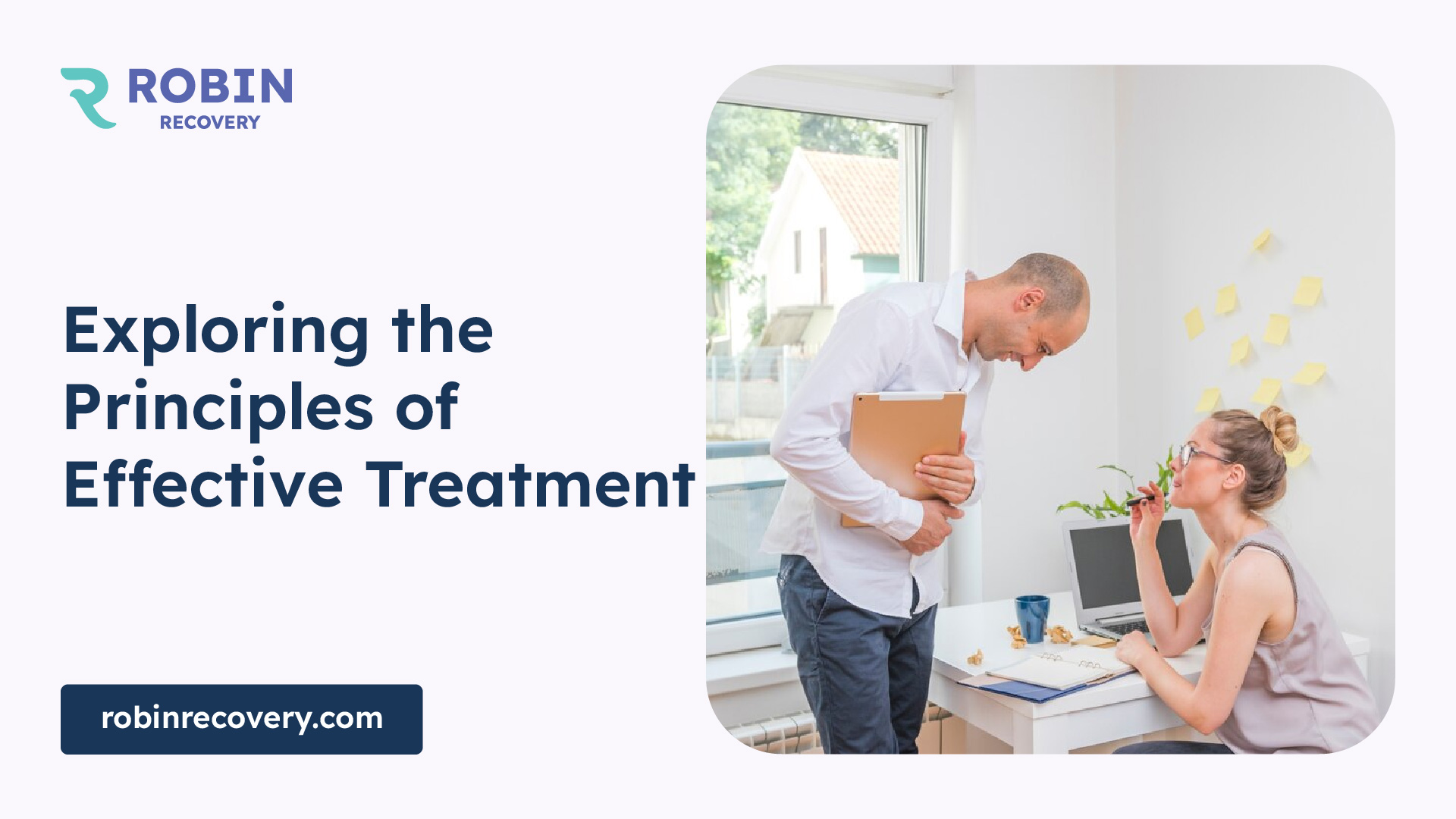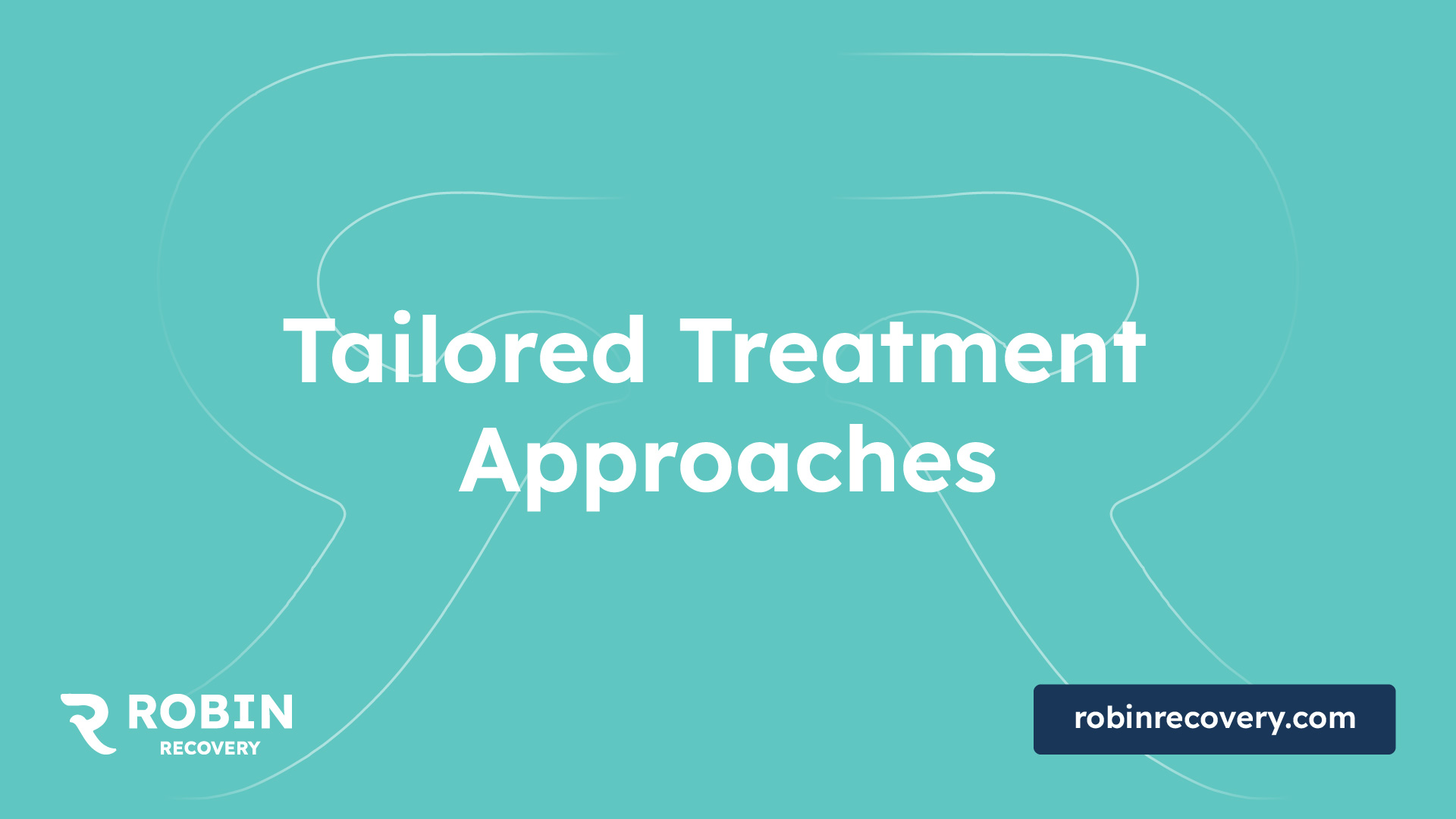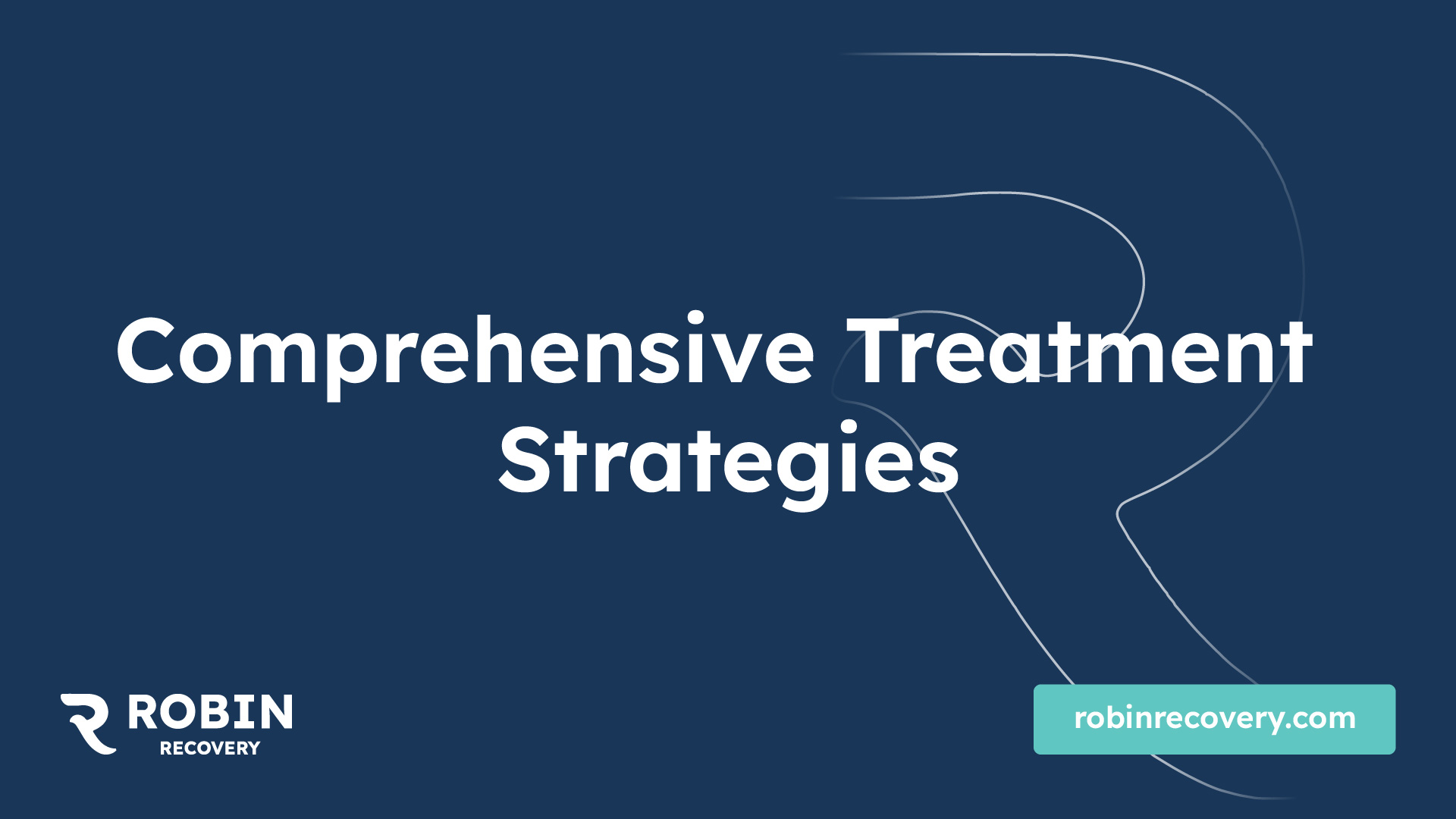Exploring the Principles of Effective Treatment


Principles of Effective Treatment
When it comes to addressing addiction, effective treatment is built upon certain key principles. These principles serve as guiding factors in providing individuals with the support and tools they need to embark on the road to recovery. Two essential principles of effective treatment are the accessibility of treatment and the utilization of individualized treatment plans.
Accessibility of Treatment
An important aspect of effective treatment is ensuring that it is accessible to those who need it. Accessibility encompasses both physical accessibility and the removal of barriers that may prevent individuals from seeking or receiving treatment. This includes factors such as geographical proximity to treatment facilities, availability of resources, and affordability of services.
By making treatment services more accessible, individuals struggling with addiction are more likely to seek the help they need. This can involve expanding treatment options in underserved areas, reducing wait times for treatment, and providing financial assistance or insurance coverage for treatment services. The goal is to remove obstacles and ensure that no one is denied the opportunity to receive the care they require on their journey to recovery.
Individualized Treatment Plans
Effective treatment recognizes that each individual's journey through addiction and recovery is unique. Therefore, the development of individualized treatment plans is crucial. These plans are tailored to address the specific needs, circumstances, and goals of each person seeking treatment.
Individualized treatment plans take into account various factors, such as the severity of addiction, co-occurring mental health conditions, and personal preferences. By creating a plan that is customized to the individual, treatment providers can better address the specific challenges and needs of each person, increasing the likelihood of successful outcomes.
Individualized treatment plans may include a combination of therapies, counseling, support groups, and other evidence-based interventions. Regular assessment and monitoring are also essential components of these plans, allowing for adjustments to ensure interventions remain effective and meet the evolving needs of the individual.
By implementing individualized treatment plans, individuals receive personalized care that addresses their unique circumstances, increasing the chances of successful recovery.
When it comes to addiction treatment, the principles of accessibility and individualized treatment plans are vital in providing effective care. By ensuring that treatment is accessible and tailored to the individual, individuals struggling with addiction can find the support they need to embark on their journey to recovery. If you're seeking more information about addiction and recovery, be sure to check out our article on your recovery toolbox.

Tailored Treatment Approaches
When it comes to effective treatment for addiction, a one-size-fits-all approach simply does not work. Each individual struggling with addiction has unique needs and circumstances that must be taken into account. Tailored treatment approaches that address these individual needs are essential for successful recovery.
Personalized Needs Addressed
Effective treatment recognizes that addiction affects individuals in different ways. To provide the best possible care, treatment plans should be personalized and tailored to each individual's specific needs. This approach takes into account factors such as the severity of addiction, the presence of any co-occurring conditions, and personal preferences.
By addressing individual needs, treatment professionals can develop strategies and interventions that are most likely to be effective for each person. For example, someone with a history of trauma may benefit from trauma-informed therapy, while others may require specific support for mental health conditions that co-occur with addiction.
Co-Occurring Conditions Considered
It is common for individuals struggling with addiction to also have co-occurring mental health conditions. Effective treatment recognizes the importance of addressing these co-occurring conditions alongside addiction. By providing integrated care that considers both addiction and mental health, individuals are more likely to achieve lasting recovery.
When co-occurring conditions are identified and addressed, it can significantly improve treatment outcomes. For instance, someone with both addiction and anxiety may require therapeutic approaches that simultaneously target both conditions. By providing comprehensive care that addresses the full spectrum of an individual's needs, treatment can be more effective and supportive.
To learn more about the factors influencing drug use tendencies in individuals and the risk and protective elements influencing drug usage, visit our articles on why are some people more likely to use drugs? and factors influencing drug use tendencies in individuals.
By recognizing the importance of tailored treatment approaches, individuals can receive the care they need to overcome addiction and achieve lasting recovery. It is essential to find a treatment program that understands the unique needs of each individual and offers personalized support throughout the recovery journey. Remember, recovery is a process that requires comprehensive care and a multifaceted approach. To learn more about building your recovery toolbox and finding support, visit our articles on your recovery toolbox and finding your tribe.

Comprehensive Treatment Strategies
When it comes to effective treatment for substance use disorders, a comprehensive approach is essential. This involves addressing the individual's needs from a holistic perspective and integrating mental health care into the treatment process. Let's explore two important components of comprehensive treatment strategies: the holistic approach and mental health integration.
Holistic Approach
A holistic approach to treatment recognizes that addiction affects individuals on multiple levels - physically, mentally, emotionally, and spiritually. It emphasizes the importance of treating the whole person rather than just the addiction itself. By addressing all aspects of an individual's well-being, a holistic approach aims to promote long-term recovery and overall health.
In a holistic treatment program, various therapeutic modalities may be utilized, including individual counseling, group therapy, family therapy, and alternative therapies such as yoga, meditation, and art therapy. These modalities work together to promote healing and personal growth, addressing the underlying issues that contribute to addiction.
By considering the individual as a whole and providing a range of supportive services, such as your recovery toolbox and finding your tribe, a holistic approach helps individuals develop the skills and resources necessary to maintain sobriety and improve their overall quality of life.
Mental Health Integration
Effective treatment for substance use disorders should also address any co-occurring mental health conditions. According to the source, individuals with substance use disorders often have co-occurring mental health conditions such as anxiety, depression, or post-traumatic stress disorder (PTSD). Treating these conditions alongside addiction is crucial for successful recovery.
Mental health integration involves providing integrated care that simultaneously addresses both the substance use disorder and the co-occurring mental health condition. This can include individual therapy, group therapy, and medication management tailored to the individual's specific needs.
By addressing both the addiction and the underlying mental health conditions, individuals are better equipped to achieve lasting recovery. Integrated care ensures that treatment is comprehensive and personalized, taking into account the unique challenges and needs of each individual.
Cultural competency in treatment is also an important aspect of comprehensive care. Cultural competency emphasizes the importance of health systems and providers being aware of and responsive to patients' cultural perspectives and backgrounds. This includes respecting patient and family preferences, values, cultural traditions, language, and socioeconomic conditions [1]. It is essential for healthcare providers to consider patients' diversity of lifestyles, experiences, and perspectives for joint decision-making in care delivery.
By adopting a holistic approach and integrating mental health care into the treatment process, comprehensive treatment strategies provide individuals with the tools and support they need to overcome addiction and achieve long-term recovery. The multifaceted nature of these approaches addresses the complexity of addiction and helps individuals build a solid foundation for a healthier and more fulfilling life.
Medication and Behavioral Therapy
When it comes to effective treatment for addiction, a combination of medication and behavioral therapy has proven to be highly beneficial. Let's explore the utilization of medication and the importance of behavioral therapy in the treatment process.
Medication Utilization
Research shows that medication is often the first line of treatment for addictions to substances such as opioids, alcohol, and nicotine. According to the National Institute on Drug Abuse (NIDA), medications play a crucial role in helping individuals overcome their addiction [2]. Medications can help manage withdrawal symptoms, reduce cravings, and stabilize brain chemistry, making it easier for individuals to abstain from drug use.
It's important to note that the availability of medications varies depending on the type of addiction. For opioids, medications are readily available and are typically combined with some form of behavioral therapy or counseling. On the other hand, for drugs like stimulants or cannabis, there are currently no specific medications available for treatment [2]. In such cases, treatment primarily relies on behavioral therapies.
Different types of medications may be used at different stages of treatment to address specific needs and help individuals stop abusing drugs, stay in treatment, and prevent relapse [2]. The selection and administration of medications should be individualized, taking into account the patient's unique circumstances and medical history.
Behavioral Therapy Importance
Behavioral therapy is an integral component of addiction treatment. It helps individuals modify their attitudes and behaviors related to drug use, enabling them to cope with stressful situations and triggers that might lead to relapse. Behavioral therapies can also enhance the effectiveness of medications and increase treatment retention rates [2].
Through behavioral therapy, individuals learn healthy coping mechanisms, develop problem-solving skills, and acquire strategies to manage cravings and prevent relapse. Therapy sessions may include individual counseling, group therapy, family therapy, cognitive-behavioral therapy, and motivational interviewing, among other approaches. The specific therapy modality used will depend on the individual's needs and preferences.
In addiction treatment, medication and behavioral therapy work synergistically to address the complex nature of addiction. While medications help manage the physical aspects of addiction, behavioral therapy focuses on the psychological and emotional factors that contribute to substance abuse. This comprehensive approach increases the likelihood of successful recovery and long-term sobriety.
It's important to recognize that stopping drug use is only one part of a comprehensive recovery process. Effective treatment should address the needs of the whole person, encompassing medical, mental, social, occupational, family, and legal aspects. This multifaceted approach ensures that individuals receive comprehensive care that supports their overall well-being and long-term recovery [2].
In summary, the combination of medication and behavioral therapy forms the foundation of effective treatment for addiction. Medications aid in managing withdrawal symptoms and cravings, while behavioral therapy helps individuals develop healthier behaviors and coping strategies. By integrating these two approaches, individuals can achieve lasting recovery and regain control of their lives.
Long-Term Recovery Process
The journey to recovery from addiction is a complex and ongoing process that extends beyond simply stopping drug use. To achieve lasting recovery, it is essential to address the comprehensive care needs of individuals and adopt a multifaceted approach.
Comprehensive Care Needs
According to the National Institute on Drug Abuse (NIDA), effective treatment should address the needs of the whole person. This includes attending to their medical, mental, social, occupational, family, and legal needs. By taking a comprehensive approach, treatment programs can provide individuals with the necessary support and resources to navigate the challenges of recovery.
Treating the physical aspects of addiction involves medical interventions and strategies to manage withdrawal symptoms, address underlying health conditions, and promote overall well-being. Mental health care is crucial in addressing co-occurring disorders or mental health issues that may contribute to substance abuse. Social support systems, such as family therapy and peer support groups, play a vital role in long-term recovery by providing encouragement, understanding, and a sense of community.
Additionally, addressing occupational and legal needs can help individuals reintegrate into society, find employment opportunities, and address any legal issues that may have arisen due to their addiction. By addressing the comprehensive care needs of individuals, treatment programs can create a solid foundation for long-term recovery.
Multifaceted Approach
Recovery from addiction is not a one-size-fits-all process. It requires a multifaceted approach that considers the unique circumstances and needs of each individual. This approach involves integrating various treatment modalities and strategies, such as therapy, counseling, support groups, and skill-building workshops.
A holistic approach to treatment recognizes that addiction affects multiple dimensions of a person's life. By addressing the physical, psychological, emotional, and social aspects of addiction, individuals are more likely to achieve lasting recovery. This approach may include therapies such as cognitive-behavioral therapy, motivational interviewing, and family therapy, tailored to the individual's needs.
Mental health integration is another essential component of a multifaceted approach to recovery. Many individuals struggling with addiction also experience co-occurring mental health disorders. Treating both the addiction and the underlying mental health conditions simultaneously enhances the overall effectiveness of the treatment.
By adopting a multifaceted approach, treatment programs can provide individuals with a comprehensive framework for recovery, taking into account their unique needs and circumstances.
In conclusion, the long-term recovery process from addiction requires addressing comprehensive care needs and adopting a multifaceted approach. By providing comprehensive care that encompasses medical, mental, social, occupational, family, and legal needs, treatment programs can support individuals on their journey to recovery. Additionally, a multifaceted approach that integrates various treatment modalities and strategies helps individuals address the complex nature of addiction and promotes lasting recovery.
Cultural Competency in Treatment
In the field of addiction treatment, cultural competency plays a vital role in ensuring effective and equitable care for all individuals seeking help. Addressing disparities and embracing patient-centered care are key principles in providing comprehensive and inclusive treatment.
Addressing Disparities
Disparities in healthcare have been well-documented, with racial and ethnic minority groups often receiving lower-quality care compared to their white counterparts, even when insured to the same degree [1]. Recognizing and addressing these disparities is essential for promoting equitable treatment outcomes.
Cultural competency in addiction treatment involves being aware of and responsive to patients' cultural perspectives and backgrounds. This includes respecting patient and family preferences, values, cultural traditions, language, and socioeconomic conditions. Providers who prioritize cultural competency actively work to bridge the gaps in healthcare access and delivery for marginalized populations.
To ensure effective treatment, healthcare providers should strive to meet the national standards for culturally and linguistically appropriate healthcare services established by the U.S. Office of Minority Health. These standards emphasize delivering care that is effective, equitable, understandable, and respectful for diverse cultural health beliefs and practices, preferred languages, health literacy, and communication needs [1].
Patient-Centered Care
Patient-centered care is a crucial aspect of effective addiction treatment. It involves providing care that is respectful and responsive to individual patient preferences, needs, and values. This approach recognizes that patients are unique individuals with diverse lifestyles, experiences, and perspectives, and encourages joint decision-making in care delivery.
By embracing patient-centered care, healthcare providers create a collaborative treatment environment where patients feel empowered to actively participate in their recovery journey. This approach takes into account patients' cultural backgrounds, beliefs, and values, ensuring that treatment plans are tailored to their specific needs.
To foster patient-centered care, healthcare providers should practice cultural humility. This involves honoring the beliefs, customs, and values of others through self-exploration, self-critique, and a willingness to learn from others [1]. By adopting a curious and other-oriented stance, providers can continuously evaluate and improve their cultural competence, avoiding stereotypes and biases that may hinder effective treatment.
Incorporating cultural competency and patient-centered care into addiction treatment helps to create an inclusive and supportive environment where individuals from all backgrounds receive the care they need to embark on their road to recovery.
References
[2]:
